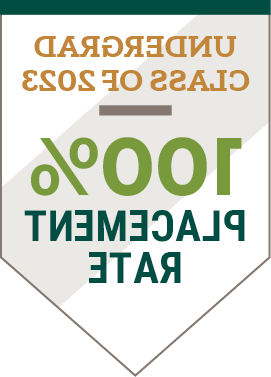
Contribute to Society-Transforming Advancements
The breakthroughs that drive society depend on chemistry. From advanced medicine to renewable energy to wearable electronics, this "central science" is at the core of each.
With a Bachelor of Science in Chemistry from Clarkson University, you'll look closely at atoms, molecules and materials. You'll learn to synthesize new compounds and study their properties, interactions and how they can be used in our everyday life — for example, to prepare pharmaceutical formulations, fertilizers, polymers and plastics, electronics, solar cells, catalysts for catalytic convertors, materials for environmental cleanup and more.
A bachelor's in chemistry from Clarkson University prepares you for leadership in the chemical and materials industries, as well as entrance to graduate and professional programs.
Why Study Chemistry at Clarkson?
Books take you only so far. The best way to understand chemistry is by doing it. As an undergraduate at Clarkson, you'll have remarkable opportunities to participate from day one in research that makes a real difference.
You'll work alongside faculty as well as graduate students who are ready to incorporate you into their work. As they work on the development of next-generation technologies in our state-of-the-art labs, so will you.
And you'll do it in our small, close-knit department, where you'll get to know our faculty members (and they'll get to know you).
By the time you graduate, you'll be in a position to put your skills to work at one of the dozens of employers that turn to Clarkson for students or in leading graduate programs across the country.
What You'll Learn
Your undergraduate chemistry courses account for 68 of the overall 120 credit hours needed to graduate. Some of the classes you will take include:
- Better Materials Through Chemistry
- Carbon Capture and Sequestration
- Electrochemistry and Separation
- Food Chemistry
- Forensic Chemistry
- Intro to Biomaterials
- Nanostructured Materials
- Organic Chemistry




